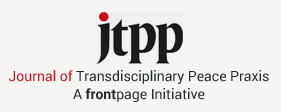Description
Social inequality contrasts in the five different BRICS countries, having a population of more than 3.22 billion, constituting almost 40% of global population, with different kinds of development in each, and these also reflect a massive set of circumstances in the global South.
With original insights from 21 divergent researchers from different BRICS countries, all the 18 chapters in this Handbook are about timeless issues that recur in the BRICS countries in socio-economic, cultural and political contexts with particular analyses on identities, racialized discrimination, consumption patterns, subaltern counterpublics, social engineering, indigenous systems, technological innovations, employment, sports, mega-events; the sub-disciplines dealt with can also bring together political theory to conceptually frame one of the most basic questions that cuts across all the sciences, viz., what is the best way to live life?
Inequalities continue and may increase over time, despite the fact that social inequality is a contested idea which may even defy definition. Inequality in BRICS countries is also socially relevant for other regions of the globe, including European Union, the Americas, Africa, CIVETS (Colombia, Indonesia, Vietnam, Egypt, Turkey and South Africa), and the ‘Next 11’ (Bangladesh, Egypt, Indonesia, Iran, Mexico, Nigeria, Pakistan, the Philippines, Turkey, South Korea and Vietnam). These regions and countries may need to be concerned about inequalities in the reconstruction of their societies, and this critique may be an important ready reference.
Social inequalities in BRICS countries emerged out of an ongoing research by the sociologists, with two discourses published to date (on stratification and youth), and a further two in the offing.
Handbook on Sociology of Inequalities in BRICS Countries is a ‘must-read’ companion for post-graduate students, researchers, governments and its affiliated organs, political parties, foundations, non-governmental organisations, multi-lateral organisations, consulting companies, international bodies, investment organisations, policy advisors, think tanks, stakeholders in private sector, consultants, community stakeholders, sports organisations, alternative media propagators and practitioners.
Contents
Foreword
Dedication
In memory of Professor Ishwar Modi
Preface
About the Book
Contributors
Chapter 1
Jayanathan Govender & Kiran Odhav
Understanding Inequality
Brazil
Chapter 2
Tom Dwyer & José Vicente Tavares dos Santos
Brazilian Sociology and the Internationalisation of Sociology in the BRICS Societies
Chapter 3
Michel Nicolau Netto
The Symbolic Forms and the Conflict in the Mega-Events
Chapter 4
Bárbara Castro & Helena Hirata
Oscillations in Gender and Race Inequalities: Brazilian Labour Market between 2003-2021
Russia
Chapter 5
Mikhail F Chernysh & Valeriy A Mansurov
Social Justice in Changing Societies
Chapter 6
Alexandrina Vanke
Reconceptualising the Working Class in Contemporary Russia
Chapter 7
Anna Strelnikova
Education, New Technologies and Inequality in Contemporary Russia
India
Chapter 8
Dhanraj A Patil
The Upsurge of Subaltern Counterpublics: Community Radio, New Publics and Participatory Development Actions in Rural India
Chapter 9
Chandni Basu & Ronita Chattopadhyay
Indian Modern Childhood Inequality
Chapter 10
Surinder S Jodhka
Castes of the Indian Middle Class: The ‘Old’ and the ‘New’ of Inequality in India
China
Chapter 11
Zhu Di
The Middle Class in Contemporary China and its Consumption Patterns
Chapter 12
Li Chunling
Chinese Middle Class by Relative and Absolute Standards
Chapter 13
Hong Lin
Pastoral Family’s Practice of Poverty Alleviation from the Perspective of Social Change in China
South Africa
Chapter 14
Banita Odhav
Continuing Success of Females towards Management Level in the Construction Industry in South Africa
Chapter 15
Mokong Simon Mapadimeng
Towards Indigenisation of the Educational Curriculum: Challenges and Possibilities with Specific Reference to African Myths as Knowledge Source
Chapter 16
Nyna Amin
The Reproduction of Inequalities: When Harmonious Desegregation Services Unequal Education
Chapter 17
Kiran Odhav
Hegemony in Sport: Cricket in South Africa and India
Chapter 18
Jayanathan Govender
Racialized Inequality in Post-Apartheid South Africa
Kiran Odhav & Jayanathan Govender
Conclusion





